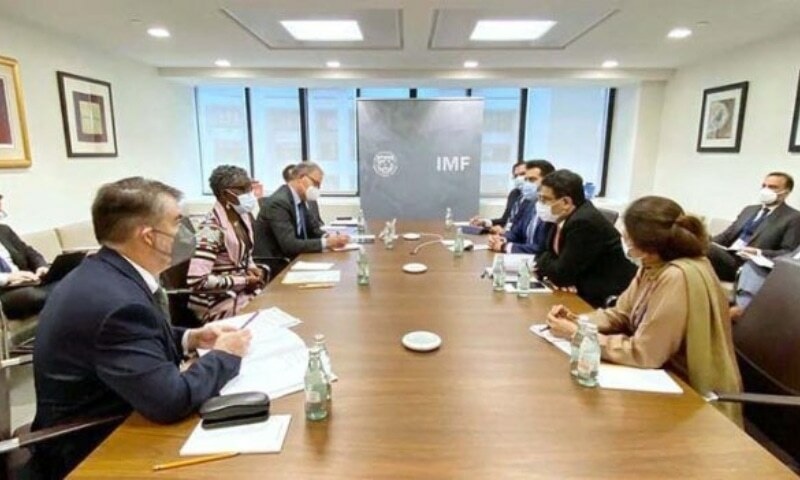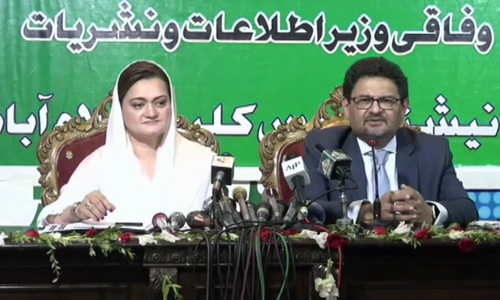Officials of the International Monetary Fund (IMF) will visit Pakistan in May to discuss issues regarding the subsidies being given by the government on petrol and electricity, according to a press release issued by the Finance Division on Sunday.
The announcement comes as Finance Minister Miftah Ismail, after landing in Washington to attend the spring meetings of the World Bank and the IMF, had his first meetings with senior IMF officials in which he later said the Fund had "talked about removing the subsidy on fuel".
The press release said the Pakistani delegation held several meetings with IMF officials — including IMF Deputy Managing Director Antoinette Sayeh, Director Middle East and Central Asia Department Jihad Azour and Pakistan Mission Chief Nathan Porter — in which they discussed pathways to complete the seventh review.
In 2019, the IMF approved a $6 billion loan for Pakistan but concerns about the pace of IMF-mandated reforms delayed its disbursements. The sixth review was completed in February when the IMF also agreed to immediately release $1bn for Pakistan.
Ismail laid out the government's priorities and efforts to bring fiscal discipline while insulating the vulnerable from oil price volatility in the international markets for which the Fund expressed support to the delegation.
The press release added that Ismail also met World Bank officials — Managing Director (Operations) Axel von Trotsenburg, South Asia Vice President Hartwig Schafer and others — where the "progress of ongoing programme loans and projects, as well as avenues for further assistance, were discussed."
Ismail thanked the World Bank officials for the financial and technical support provided throughout with Trotsenburg further assuring full support for Pakistan.
IMF demands
The finance minister, in his first press conference on Wednesday upon assuming office, had said the Fund wanted fuel prices increased to breakeven and taxes restored, an amnesty scheme discontinued for industries, circular debt reduced, power rates raised and fiscal savings ensured in order to completely reverse the Feb 28 relief package by former prime minister Imran Khan.
Ismail had hinted at doing away with the tax amnesty for industries at the outset and added that the IMF’s greater focus was on ending the fuel subsidy because it was creating a fiscal hole while the power tariff could somehow be delayed because its direct bearing on the budget was not immediate.














































